Blog
Your Guide to Korean Etiquette & Culture
Your Guide to Korean Etiquette & Culture
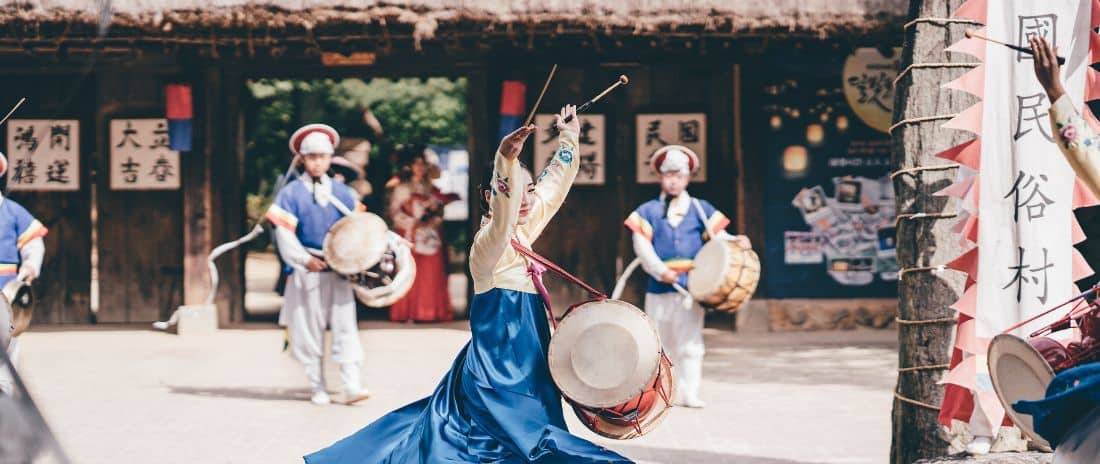
Please click the hashtags below to find out more!
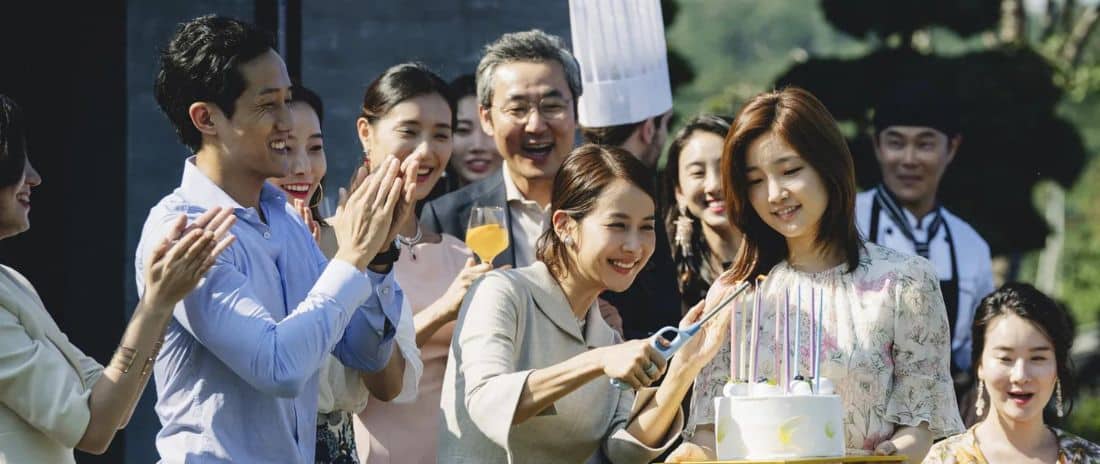
Korean Etiquette for Meeting People
In this part of the guide, we’ll learn how to meet and greet people in Korea. There are some important rules to remember, and we’ll also share easy ways to make Koreans feel comfortable when you meet them. By following these tips, you can make friends quickly and easily.
Making a Great First Impression in Korea
Whether you’re arriving at Incheon Airport or spending time with new Korean friends, these Korean etiquette tips will help you make a good impression and avoid awkward situations.
In Korea, first impressions are vital, and being formal is significant in their culture and language. Understanding how to meet and greet people properly can help you make friends and show respect for Korean traditions.
Here are three ways to meet and greet people in Korea:
Greeting: When you meet someone in Korea, it’s polite to do a slight bow. The deeper the bow, the more respect you show. But usually, a small bow is enough, unless it’s a very formal occasion.
Saying Goodbye: To bid farewell, you also bow or nod as a way to wish the person well on their journey. If you’re the one leaving, bow before you go out of the room or just before you get into a vehicle.
Handshake: In Korea, handshakes are common, especially among men. When shaking hands, it’s best to use both hands – either clasping the other person’s hands with both of yours or putting your spare hand on your wrist, elbow, or waist.
Making a Bad First Impression
Even billionaires can make etiquette mistakes when meeting people.
Bill Gates, for example, once made headlines in Korea for his ‘casual’
one-handed handshake with his hand in his pocket while meeting former Korean leader Park Geun-Hye.
Read here.
How to Be Polite in Korea
After introducing yourself to someone in Korea, it’s essential to avoid Korean etiquette mistakes, especially with physical contact. While friendly gestures like a pat on the back or a hug are common in the USA to make friends, they might have a different impact on Koreans.
Korean society values formality and conservative behavior, and maintaining a positive public image is crucial for harmony. Excessive body language can cause embarrassment and disrupt harmony. When unsure, it’s best to refrain from physical contact.
Here are three ways to avoid unintentionally offending Koreans when you meet them.
No hugging: Unless you’re close friends, avoid hugging or touching people in Korea. It can make strangers uncomfortable, especially older individuals.
Be mindful of body language: Be cautious with your body language. Crossing your legs in front of someone or waving your arms around near others can be seen as impolite.
Use proper names: It’s best not to use first names for strangers. Instead, address them with their title (e.g., Mr. Kim) or professional titles. Remember, in Korea, the name order is reversed – surnames come first, and first names come last.
Respectful Behavior in Korea
When visiting Korea, you might notice that older Koreans can appear a bit pushy, especially while waiting in lines or using public transportation. It’s because there’s an unspoken rule that gives them priority in such situations. If you happen to be in their way, they might gently push you to make room for themselves. It’s important to be understanding and allow them the space they need. Showing respect for their customs will help you have a smoother experience in Korea.
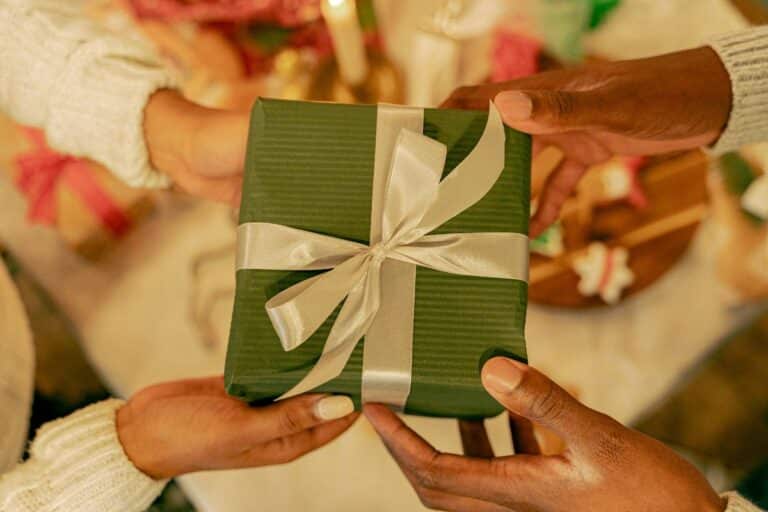
Korean Gift Giving Etiquette
Giving gifts in Korea is a nice gesture, but it’s essential to follow proper etiquette to avoid misunderstandings. When giving or receiving gifts from elders or at work, use both hands to show respect. It’s also polite to give a small bow during the exchange.
Among friends, small gifts are common on various occasions. However, avoid spending too much money on gifts, as it may put pressure on the recipient to give an expensive gift in return.
Remember these three important Korean etiquette rules for giving and receiving gifts in Korea.
Two-hand rule: When giving or receiving items, always use both hands to show respect. This applies to paying in shops, receiving gifts, and pouring or receiving drinks. It’s not as strict with younger Koreans or people you know well.
Return the favor: If someone in Korea gives you a gift, it’s a nice gesture to give them a gift of similar value at a suitable time. Western gifts, chocolates, cakes, or flowers are good choices. Make sure to wrap the gifts neatly.
Wait to open: When you get a gift in Korea, don’t open it right away. Look at the wrapping, say thank you, and put it aside. You can open it later when you’re alone, unless they ask you to open it immediately. Opening it too quickly might embarrass the giver.
Avoiding Gift Mishaps in Korea
To prevent offending someone, avoid giving gifts that are too expensive or culturally inappropriate, like sharp objects, sets of four items, or items with red writing, as they symbolize negative meanings like cutting ties or death. Also, stay away from dark wrapping paper, especially red.
Now, let’s explore some suitable Korean gift ideas.
Building Good Relationships in Korea
To maintain good relations with your Korean friends, neighbors, or acquaintances, follow these helpful tips. Polite conversation in Korea relies on subtlety and harmony, so it’s crucial to be able to understand when someone may feel uncomfortable or embarrassed, even if they don’t directly say it.
In the next section, this Korean etiquette guide will cover more about socializing, including dining out and drinking etiquette tips.
Here are three Korean etiquette rules to strengthen your connections in Korea.
Say “Yes”: In Korea, it’s not polite to say “no” directly to offers or invitations. If someone seems hesitant or avoids answering, respect their hint and drop the topic. When asked to do something, try to say yes or decline politely.
Take Hints: Koreans might not express things directly; they may give hints instead. Pay attention to subtle comments that might indicate an issue. Some people might feel too shy to complain directly.
Watch Your Hands: Pointing at people with your index finger is rude in Korea. Instead, use an open hand gesture. When beckoning someone, keep your palm facing down, not up to the sky.
Cultural Differences in Contact
In Korea, it’s common for friends and family to have close physical contact. Same-sex friends, both guys and girls, might hold hands, hug, or sit on each other’s laps comfortably. Even children and parents scrub each other’s bodies in saunas. These practices might feel surprising to people from different cultures who are not used to such close contact.
Making Friends in Korea: Socializing Etiquette
In this part of the Korean etiquette guide, we’ll talk about how group harmony and hierarchy play a role in everyday interactions, like dining together, seating arrangements, and sharing drinks. These tips will help you understand Korean culture better and make a positive impression when socializing with Koreans. By following these etiquette tips, you can build meaningful connections and show your appreciation for their customs and traditions.
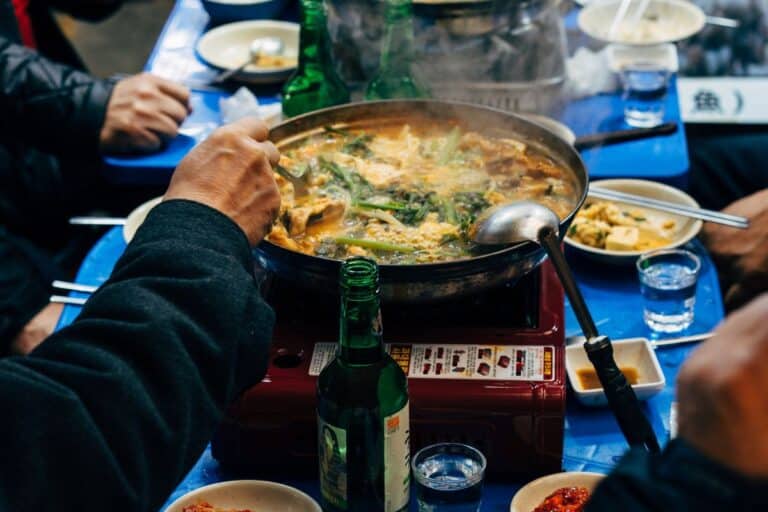
Etiquette Tips For Dining Out In Korea
In this part of the Korean etiquette guide, we’ll talk about how group harmony and hierarchy play a role in everyday interactions, like dining together, seating arrangements, and sharing drinks.
These tips will help you understand Korean culture better and make a positive impression when socializing with Koreans.
By following these etiquette tips, you can build meaningful connections and show your appreciation for their customs and traditions.
Wait for your seat: When you join a group meal, don’t rush to take a seat. In formal or work settings, seats are assigned based on social status. Let the senior or respected members sit first, then you can find your place.
Follow your elders: At meals, the oldest person is served first. Everyone waits for the senior person to start eating before they begin. This rule is more important in formal settings. The same applies for drinks, where a toast is made before drinking.
Be mindful of chopsticks: Chopsticks are important in Korean meals. Avoid pointing them at others as it’s rude. Also, don’t stand them up in rice, as this is a symbol of death and used only in funerals. Remember these chopstick etiquette rules when in Korea.
Enjoying Korean Meals Together
Eating a Korean meal is like experiencing Korean culture in a nutshell. It’s not just about the food; it’s also about following unspoken rules to create harmony. When you sit down for a meal in Korea, it’s all about sharing the experience with others, helping each other enjoy the food, showing respect, and prioritizing the group over individuals. It’s a beautiful way of coming together and fostering a sense of togetherness while enjoying delicious Korean dishes.
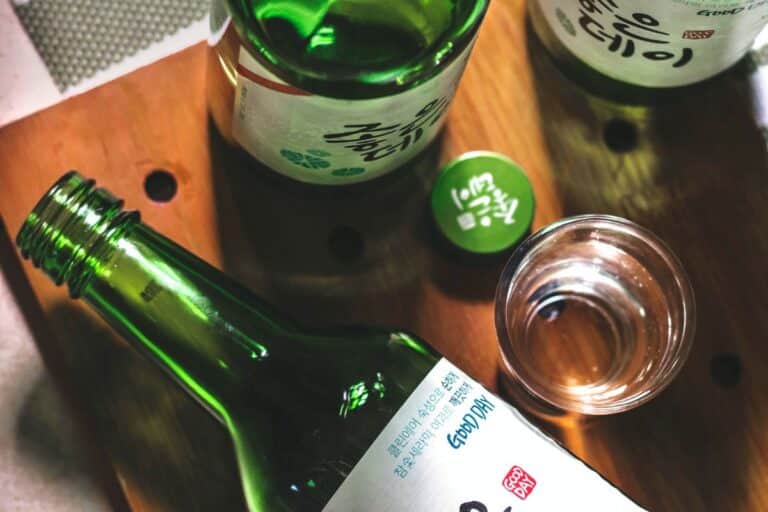
Drinking with Koreans: Etiquette Tips
Alcohol plays a big role in Korean social events, helping everyone relax and have fun together. Korean beer and soju are popular and affordable, so people often order a lot.
Drinks are served in small glasses, and it’s common to take a shot in one go, saying “one-shot!” Toasts are also popular, and you might be asked to give a speech or toast at a dinner or drinks party.
After a meal, some Koreans go for a “second round” at a bar or noraebang (karaoke) for more fun.
Here are three etiquette tips for drinking with Koreans.
Pouring Hierarchy: The most senior person starts by pouring a drink for the younger ones. After that, it’s the younger person’s responsibility to refill the elders’ drinks. If you’re unsure, play it safe and pour for others. Remember to use both hands when pouring as a sign of respect.
Don’t Pour for Yourself: Avoid pouring your own drink. In Korea, there’s a belief that doing so will prevent you from getting married. Instead, pour for others, and they’ll pour for you too.
Turn Your Head: When you drink, avoid facing older people directly. Turn your head to the right or left and cover your mouth with your hand while drinking as a sign of politeness.
Cheers, Korean Style!
When you say “cheers” in Korea, hold your cup with both hands. Make sure your glass is lower than your seniors’ to show respect. In Korean, “cheers” is “geonbae,” which means “empty glass.” Your Korean hosts might have many more expressions or jokes for toasts.
Paying the Bill in Korea
In Korea, it’s interesting that even though people share and enjoy meals together, the way they handle paying the bill is different. Instead of splitting the bill, one person usually pays for the whole meal. The situation determines who pays, with work or formal dinners being more structured than outings with friends.
In a work setting, the boss or the most senior person often pays. If someone invites you, they’ll likely cover the bill before the meal ends to avoid any awkwardness. With friends, you might take turns paying.
Remember these three etiquette tips for settling the bill in Korea and avoid arguing about it to avoid embarrassment.
-
Who Pays the Bill?
In Korea, the older and more senior person usually pays the bill. Younger ones show respect by serving and pouring drinks during the meal. Among friends, someone may offer to pay for everyone.
-
Return the Favor:
If a friend treats you, be sure to treat them another time. Don’t openly offer to pay in advance as they might feel burdened. Instead, invite them out, and when it’s time to pay, rush to the counter before them.
-
No Tipping:
In Korea, tipping isn’t common. There’s no need to leave money as a tip, as it might be returned to you. A service charge is rarely added to the bill.
Feeling the Warmth of ‘Jeong’ in Korea
‘Jeong’ is a special Korean idea that means feeling warmth and care for someone and wanting to help them. You might experience jeong when someone unexpectedly treats you to a meal. It comes from the belief in taking care of each other and creating harmony in society. This concept shows how much Koreans value their relationships with others and their sense of responsibility toward the community.

Being a Great Guest in a Korean Home
Visiting a Korean friend’s house is a big honor because homes are usually private places for family and close guests. To show respect, follow some simple etiquette rules. Take off your shoes when you enter and bring a gift. Also, remember the eating and drinking etiquette tips we mentioned earlier.
As a guest, don’t pour your own drinks, eat with others, and be ready to give a speech or two if you’re drinking. When it’s time to leave, thank the host and offer to host them in return. The host might walk you out, which is a sign of respect.
Follow these three ways to be the perfect guest when visiting a Korean friend’s house.
Bring a Gift: If you’re invited to someone’s house, it’s nice to bring a small gift like sweet foods or bread. Flowers are also good, but keep the gift simple, so the host doesn’t feel obliged to give something expensive in return. Gift wrapping is appreciated.
Remove Your Shoes: After a respectful bow of greeting, remember to take off your shoes. All Korean homes have a place for removing shoes and wearing slippers inside. Wearing shoes indoors is considered unlucky and unclean.
Toilet Slippers: If you need to use the restroom, you’ll need to change into separate slippers provided for the bathroom. Don’t forget to take them off when you’re done! This is also common in traditional Korean restaurants.
The Special Guest
In Korean culture, jeong is significant, and it applies when visiting someone’s home. If you’re invited to a Korean home, they’ll treat you like family. To show respect, be punctual, bring a gift, and avoid saying or doing things that might upset them. It’s essential to be mindful of their customs and make a good impression as their honored guest.
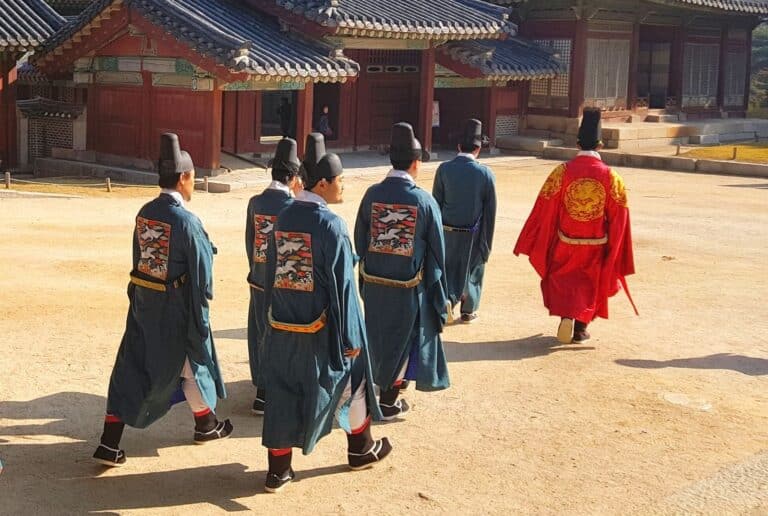
Being a Great Guest in a Korean Home
Understanding Korean Social Hierarchy
To grasp why Korean etiquette is important, let’s explore the Korean social order and hierarchy. From ancient teachings to modern culture, there are fascinating aspects that shape Korean behavior.
Discover the five different relationships in Korean society and how they affect addressing people by their names. Learn about kibun and nunchi, crucial aspects of Korean culture. Before diving into these details, let’s get an overview of Confucius, who greatly influences Korean social hierarchy.
The Influence of Confucian Teachings in Korea
Over 2,500 years ago, a wise Chinese philosopher named Confucius shared important teachings. These teachings still strongly impact Korean society today, making Korea the most Confucian society in the world. Confucius believed in harmony, caring for others, and putting the group’s needs before our own, making Korea a collectivist society.
These teachings shaped Korean morals, laws, and etiquette. Despite sometimes being confusing to Western visitors, Korean culture is welcoming and friendly. The positive aspects of this influence include respect for elders, generosity to strangers, and avoiding conflicts.
Modern Korea reflects this through friendly service at places like restaurants and cafes, where tipping isn’t common. You’ll also see kindness on the subway with reserved seats for the elderly or those in need. Koreans are often ready to help strangers without expecting anything in return. If you visit Korea alone, you might meet friendly locals who want to chat and learn about your culture.
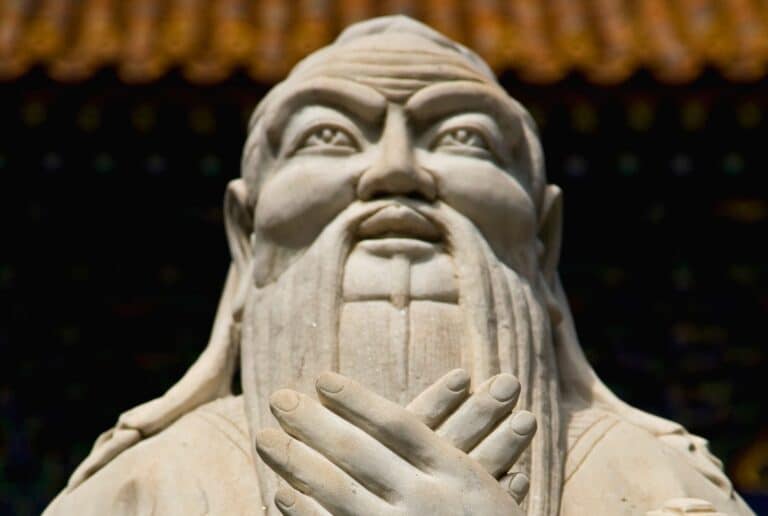
Navigating Cultural Differences in Korea
Confucianism has many positive aspects, but there are some things to be aware of. In Korean culture, group harmony is essential. Loud or offensive actions, like crossing your legs or hugging, can make people uncomfortable. They may not mention it to avoid embarrassment or conflict.
For travelers visiting Korea, the clash between Western (individualistic) and Korean (collectivist) cultures is usually not a big issue, as tourists are seen as outsiders. But if you plan to live in Korea, understanding that the group comes first is crucial. Speaking up and being loud is not valued. Humility and following rules are important.
Despite cultural differences, both Americans and Koreans value friendship, generosity, and respect. The way these values are expressed might differ, but they share common morals and beliefs.
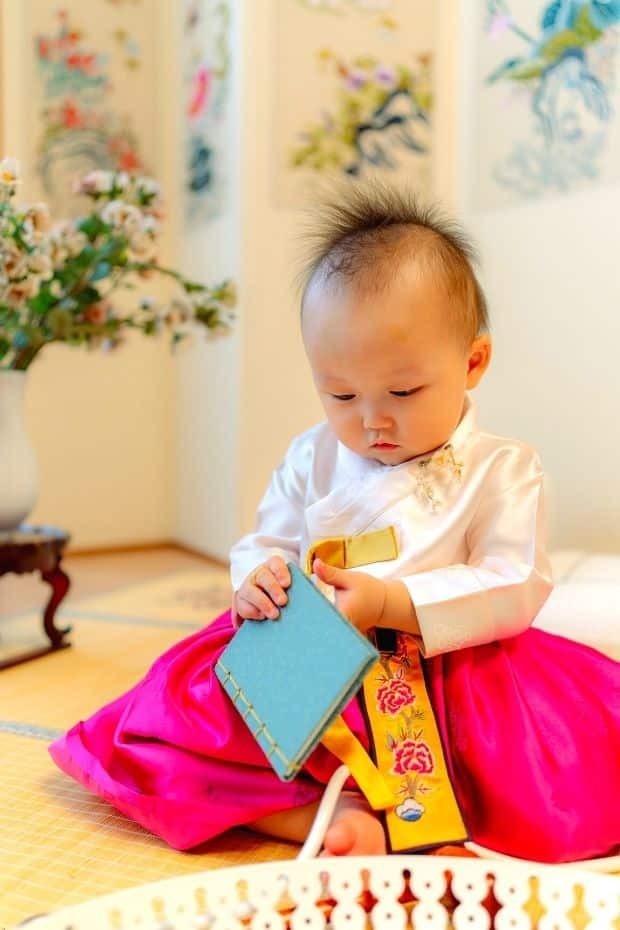
Korean Social Structure Based on Age
Confucian teachings have influenced a strict social structure in Korea, where age and social status matter. People’s standing is determined by their family, upbringing, wealth, education, and job, though these factors are less crucial than in the past.
In traditional Korean society, there are five hierarchical relationships: King to subject, husband to wife, father to son, elder to younger, and friend to friend. Only friendships are considered equal, so Koreans often befriend people of similar age to avoid hierarchy rules.
Knowing someone’s age helps you understand their position in the social hierarchy and how to behave with them. It’s common for Koreans to ask someone’s age directly or indirectly. While it might surprise some, it’s a normal part of social interaction, and Koreans don’t feel embarrassed to ask.
If you’re unsure about someone’s status, it’s best to be respectful and polite, which is good advice in any situation.

Understanding Kibun & Nunchi in Korea
In Korea, there are hidden aspects of etiquette and culture called ‘kibun’ and ‘nunchi’ that can be tricky for visitors to grasp. To navigate social events, it’s crucial to know why kibun and nunchi are important.
Kibun is a person’s sense of face, pride, feelings, and honor, tied to their position in society and how others respect them. Damaging someone’s kibun hurts their dignity and pride, so Koreans avoid this, even if it means telling small lies or avoiding conflicts.
Nunchi is the ability to sense others’ feelings and maintain everyone’s kibun harmoniously. People use body language and listen to the tone of voice to understand nunchi.
Kibun and nunchi are complex concepts that guide social interactions, even if confrontations are avoided, sometimes at a cost.

Language and Korean Social Hierarchy
In Korea, language reflects respect and social hierarchy. There are three types of speech: informal, formal, and respectful. Respectful speech is for elders or superiors, like in shops and restaurants to show respect to customers.
Formal and respectful speech are called 존댓말 (jon-daet-mal), while informal speech is 반말 (ban-mal). They are mostly the same, but respectful speech has different words for some things, especially personal topics like family.
To show respect, you can address someone by their job title or relation, like calling them ‘boss’ or ‘aunty’. If you don’t know their name, you can call them 선생님 (seon-saeng-nim), which means ‘teacher’, a respected position. If they are your peer, you can use their name, but add the honorific 님 (nim) or 씨 (sshi).
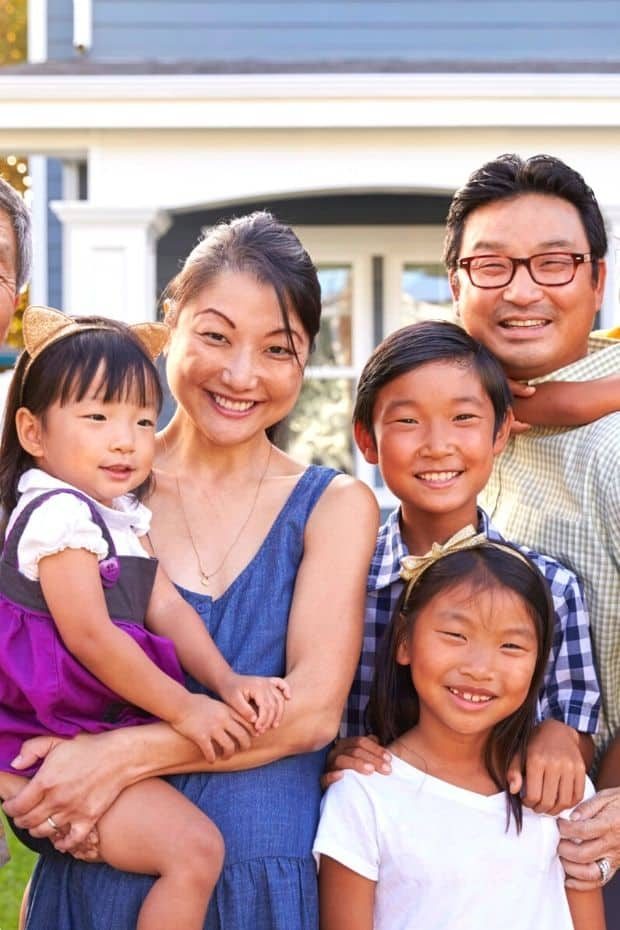
Family First In Korea
Family is highly important in Korea, like in many other countries. Their strong family ties and traditions are influenced by Confucian ideals. Filial piety, which means respecting parents and elders, is a big part of Korean family life and etiquette.
Parents take care of their children and support them in various ways, like spending money on their education and helping them buy a home. Children are expected to respect and obey their parents, and later, take care of them when they are older.
Arranged marriages are still common in Korea, where parents and friends help find life partners. Divorce rates are low as getting divorced was seen as a rare and difficult decision.
In Korea, family names are different from the US. Children usually take their father’s surname, and married women keep their own surname. The oldest son traditionally takes on the responsibility of caring for the family and their parents in their old age.

The Powerful Korean Ajumma
When talking about Korean social hierarchy, we must mention the ajumma (아줌마) – married, middle-aged women often called “aunty”. You’ll find them everywhere in Korea, bustling around, chatting, and making their presence known.
Ajummas seem to enjoy breaking the rules, pushing their way onto public transport, talking loudly in public, and dressing in vibrant, eye-catching outfits. They don’t conform to traditional social norms!
If you’ve seen the show “Kim’s Convenience”, Umma’s character is a great example of a Korean ajumma, though she might need a bigger perm!

Korean Etiquette Taboos: What to Avoid
Korea is a friendly and tolerant society, but it’s best to steer clear of cultural mistakes that might upset your Korean friends or hosts. While there are many ways to unintentionally offend someone, remembering a few key etiquette taboos can save you from trouble and awkward situations.
Some taboos are related to eating, like not pointing with chopsticks, not wearing shoes inside restaurants, and using wet wipes instead of licking your fingers. Others are about personal space, so be mindful of getting too close to others, even if you admire K-Idols!
Here are six simple etiquette taboos to keep you out of trouble.
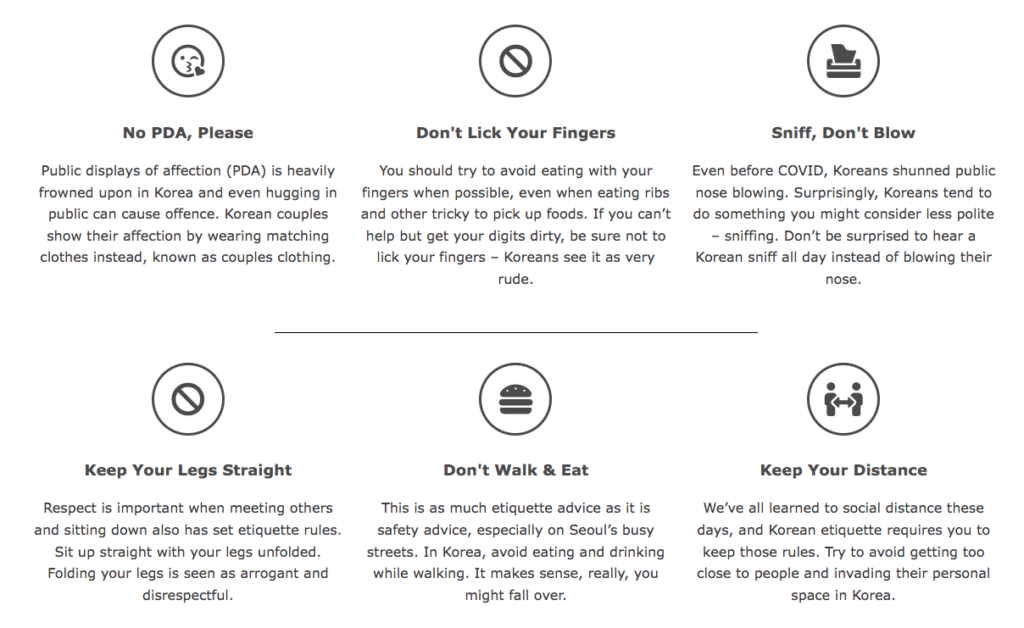
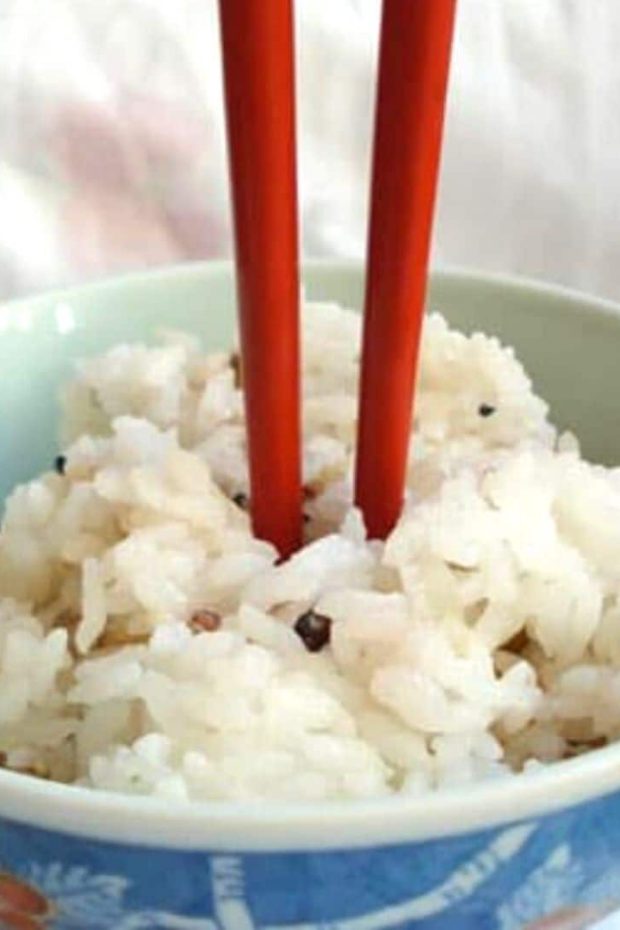
Beware of Deadly Korean Superstitions
Modern Korea is known for its technology and entertainment, but it also holds deep superstitions based on traditional beliefs. These superstitions may surprise those unfamiliar with Korean and East Asian cultures, as they involve accidentally wishing harm on others or inviting bad luck.
For example, using red ink, certain numbers, or certain chopsticks can be associated with death and funerals. Another peculiar superstition is the belief that leaving electric fans on at night can be fatal. Since the 1920s, some Koreans have feared the “whirling blades of death” from electric fans.
Here are three spooky superstitions to watch out for in Korea.


Discovering Korea's Religious Diversity
Korea is a country with various religious beliefs, but a significant number of people don’t identify with any religion. However, you’ll find interesting customs and practices among the people. Some visit fortune tellers before marriage, while others pay respect at Buddhist temples and hold ceremonies to honor their ancestors.
The two main religions in Korea are Buddhism and Christianity, but they have different histories and origins. Buddhism has been in Korea for centuries, while Christianity entered the country through Chinese scholars and faced challenges throughout its history.
Korea also has ancient animistic and shamanistic traditions predating both Buddhism and Christianity. If you wish to visit temples, shrines, or churches, remember to do so respectfully. Shoes are not allowed inside temples, and eating or drinking may be restricted. It’s important not to disturb monks or priests during their worship or ceremonies. Treat these places with the same respect as you would as a guest in someone’s home.
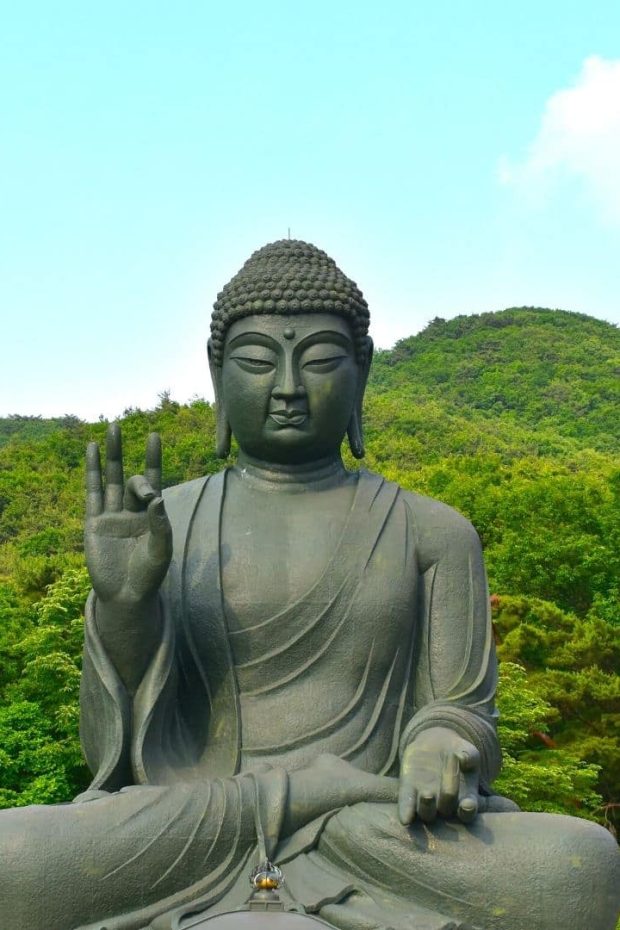
Religions in Korea: Buddhism and Christianity
In Korea, there are two main religions – Buddhism and Christianity. Even though you might see many Buddhist temples when traveling in Korea, the largest religion is Christianity. Around 20% of Koreans are Protestant, 8% are Catholic, and 16% follow Buddhism.
When you visit Korea, you’ll notice many churches with bright red crosses in cities, while Buddhist temples are more common in the countryside, especially near national parks. Buddhists have a strong connection with nature and mountains.
If you want to learn about Korean Buddhism, consider a temple stay. It’s a great opportunity to experience the daily life in a Buddhist temple, have conversations with monks, and even spend a night there.
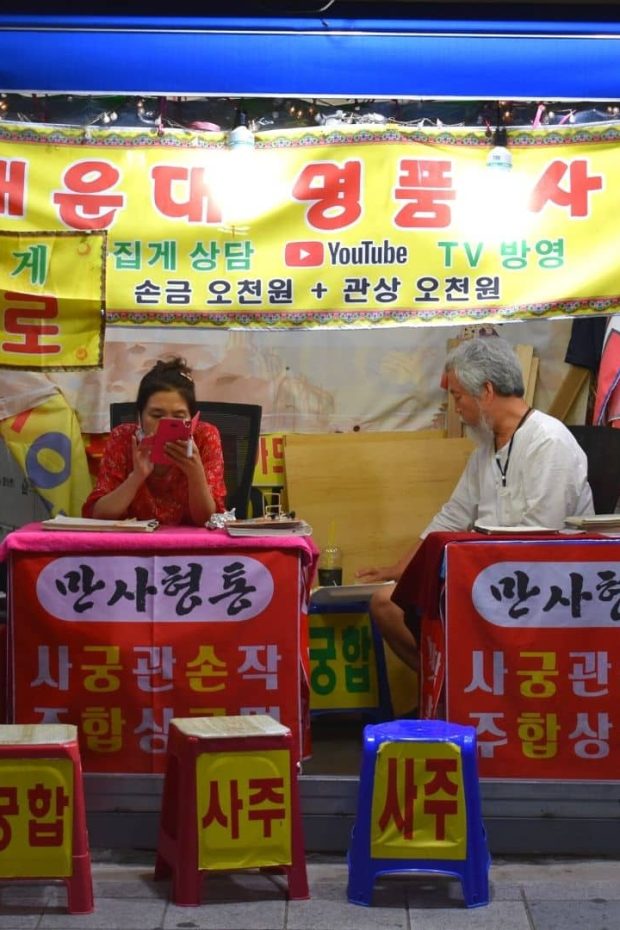
Traditional Beliefs in Korea
Besides Christianity and Buddhism, there are other traditional beliefs in Korea. Korean shamanism, an ancient belief system, was widely followed in the past. It involves worshipping gods, nature spirits, and ancestors. Even the recent President of Korea believed in it.
There are around 150,000 Korean shamans who act as intermediaries between the spiritual and material worlds. They use rituals like songs, dances, and prayers to solve people’s daily problems.
Fortune telling and tarot are also popular in Korea, with over 300,000 people claiming to communicate with spirits. Fortune tellers can be found all over Korea, offering their services before important events like marriage, exams, or the new year.

Korean Business Etiquette & Culture
If you’re a business traveler in Korea, it’s crucial to understand Korean etiquette and cultural norms. Confucian principles and social hierarchy play a significant role in the business world.
To succeed in Korean business, be friendly, trustworthy, honorable, and show respect in both work and social settings. Building strong connections often happens outside the office, like sharing drinks of soju.
In Korean companies, following etiquette and cultural norms is even more critical than in social or family settings. Pay attention to kibun and nunchi – avoid conflicts and never make anyone lose face due to your actions. When giving or receiving items, use both hands to show respect. Bow when greeting and leaving someone, and try speaking some Korean to make a good impression.
The work ethic in Korea may be different from the US. Koreans, especially in big corporations, like Samsung, work long hours and might stay late at the office, sometimes until midnight. Working on weekends is expected in some cases, but not that common. Koreans find it challenging to say no to requests, which can lead to extra hours of work when asked to do something.
Family plays a significant role in the Korean business world. Many major companies, including Samsung, are run by families, and family members hold management positions throughout the organization. This creates close connections between different business units, making it confusing for outsiders to understand the company’s internal dynamics and politics.
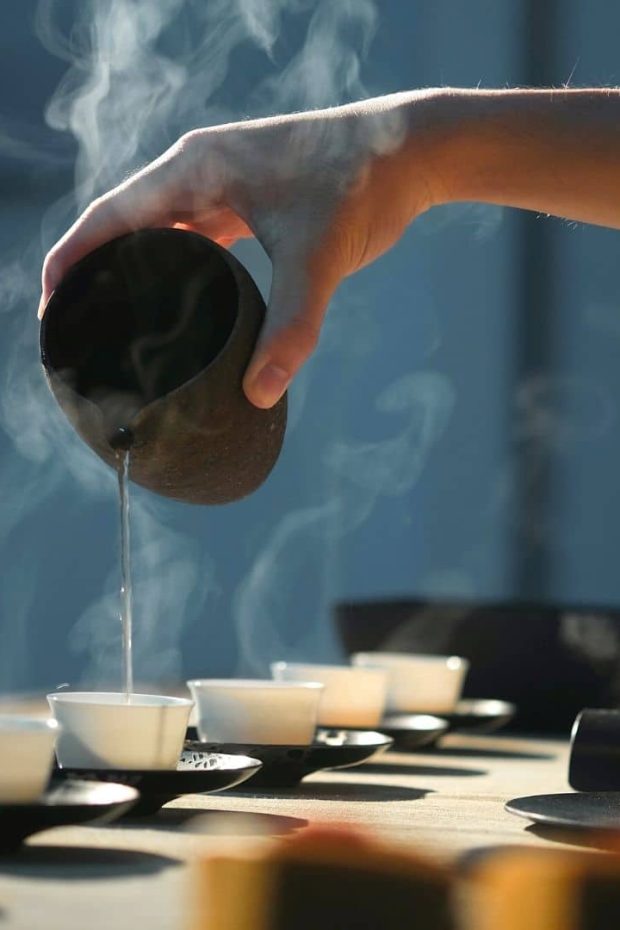
The Power of Teamwork in Korean Business
In Korea, teamwork and group harmony are crucial for business success. People in the workplace spend a lot of time building relationships and staying connected with others, even after leaving a company.
The Korean workplace follows a strict hierarchy, where bosses give orders and expect employees to follow them without questioning. Challenging these orders is considered impolite and can embarrass the manager.
Korean companies put a lot of effort into boosting team spirit. They often organize team-building activities called “membership training.” These activities can include outings, meals, or even short vacations within Korea. Companies set aside funds for these events, considering them an investment in team harmony. However, this tradition is changing, especially among younger generations who value more time with their families.
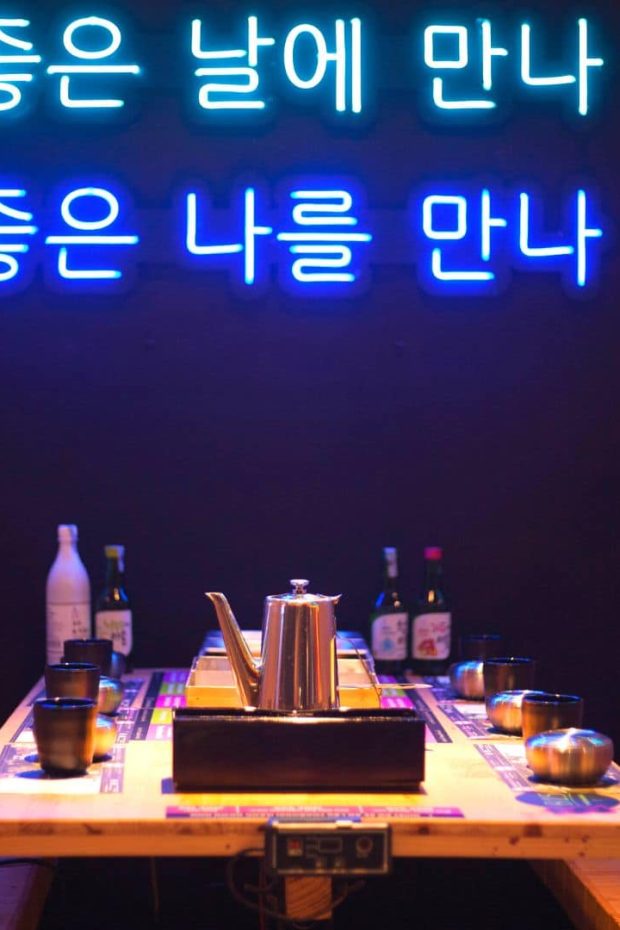
Korean Work Parties: A Fun Way to Bond
In Korea, work parties are common and important for employees and managers. These gatherings offer a chance to relax, connect with colleagues, and show respect to superiors.
At work parties, people often drink soju, a popular Korean alcohol. Remember the etiquette rules we talked about earlier, like pouring drinks for your seniors and waiting for them to eat first.
Be careful with soju because it can make you drunk quickly. You don’t have to drink a lot if you’re not comfortable. Just join the first toast, and then you can leave your glass full for the rest of the night. Others will refill it for you if it’s empty.
Discover More About Korean Culture and Etiquette!
If you’re curious to learn more about Korean culture and etiquette, we have plenty of interesting articles for you! Explore topics like Traditional Korean Funerals, Korean Weddings, and Valentine’s Day traditions in Korea.
Dating in Korea can be a bit confusing with not just one romantic day, but 12 Korean Romantic Dates throughout the year! Also, find out how Koreans use Blood Types to determine someone’s personality.
Want to understand why Korea has become a cultural powerhouse and why K-Culture is so exciting? Read our in-depth guide on How South Korea Became the Capital of Pop Culture.
If you’re interested in visiting cultural sights, we have a list of Seoul K-Drama Filming Locations for you to explore. Plus, check out our recommendations for delightful Korean children’s books to learn more about Korean culture.
If you’re planning to travel to Korea, head over to our South Korea Travel Guide to start planning your trip.
Remember, this guide only touches the surface of Korean culture and etiquette. There’s so much more to discover about Korea’s rich and unique traditions, customs, and beliefs. Keep coming back to Best of Korea for more fascinating insights and articles!

